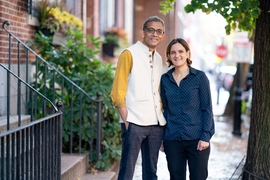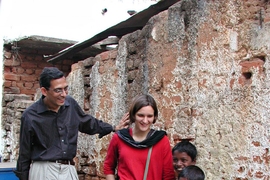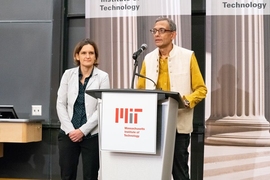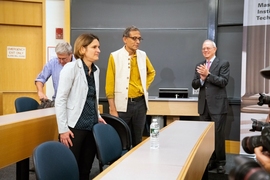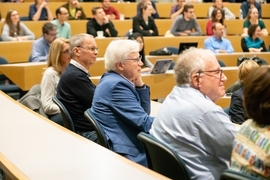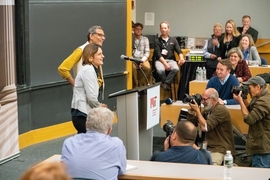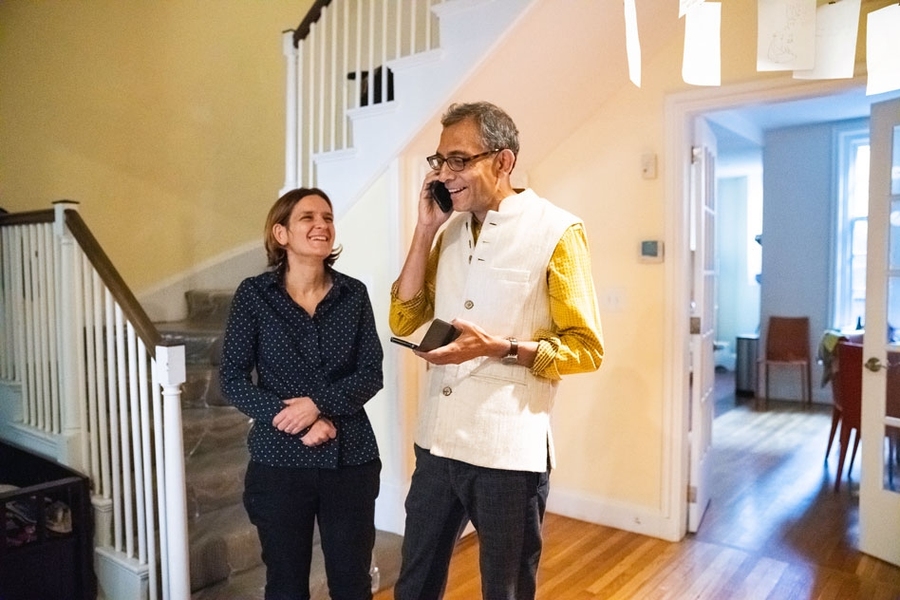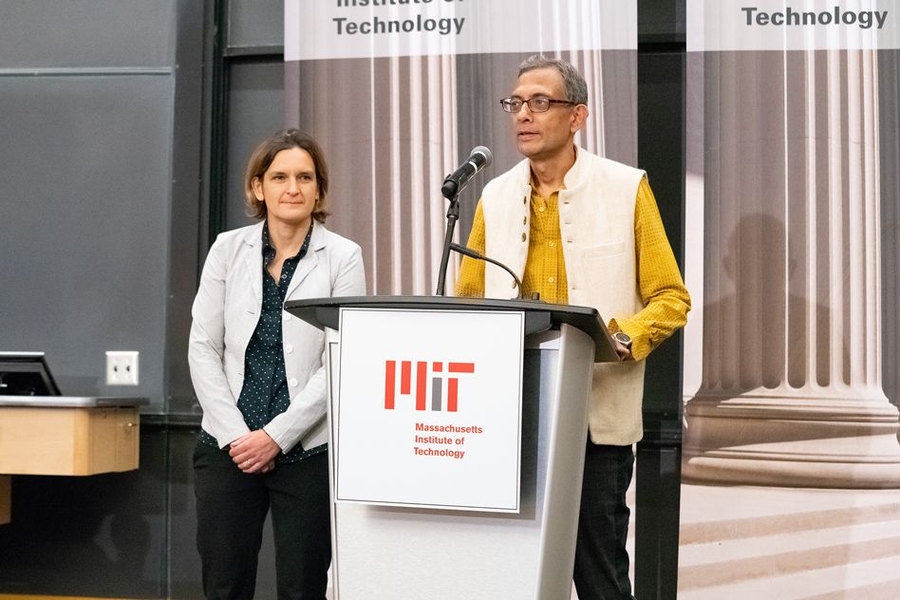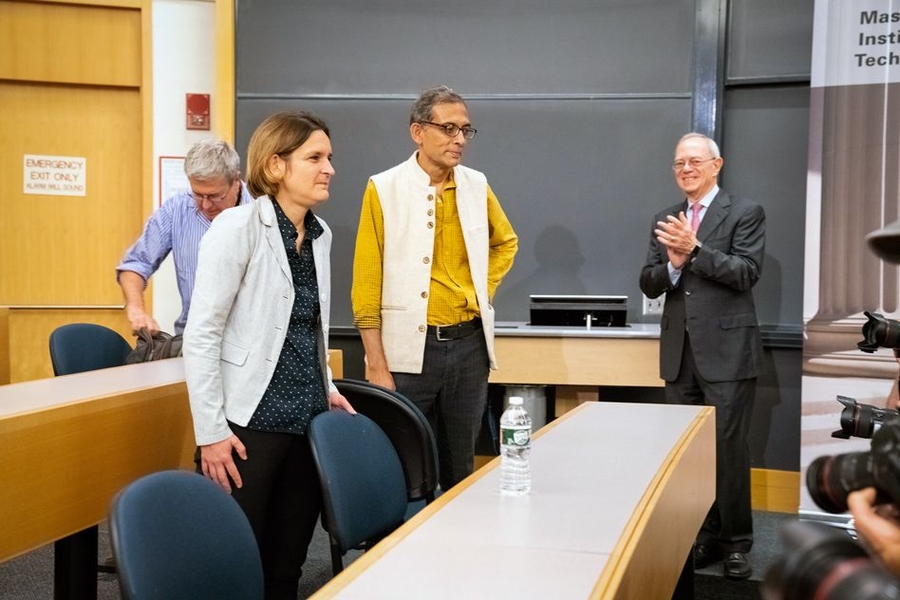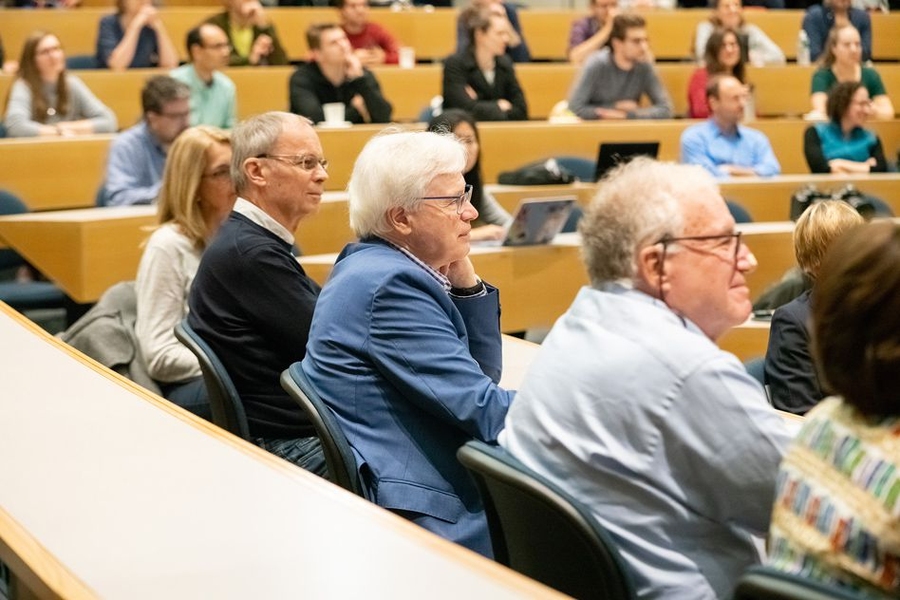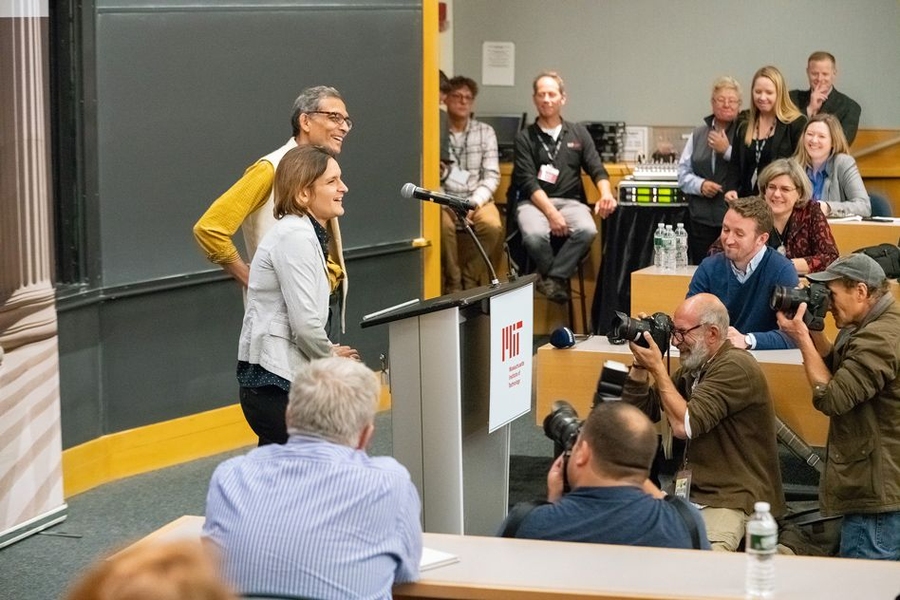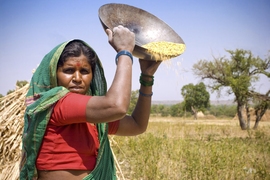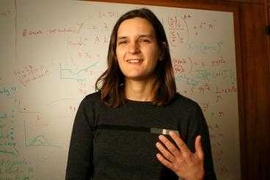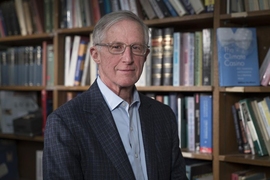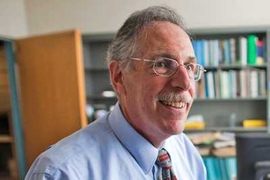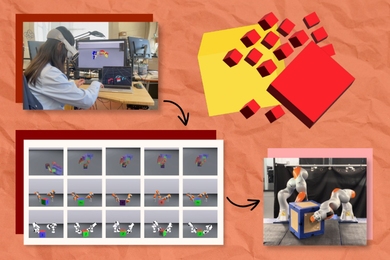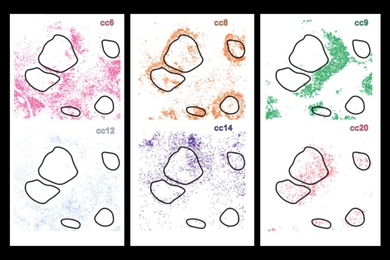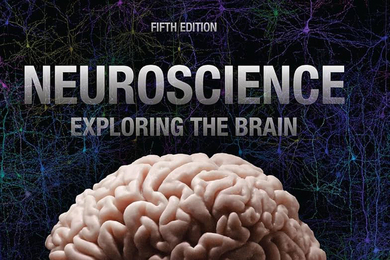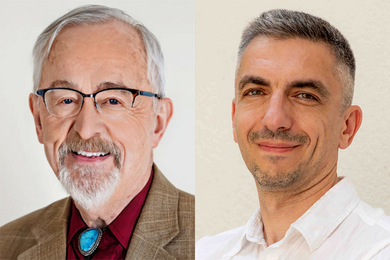Esther Duflo and Abhijit Banerjee, MIT economists whose work has helped transform antipoverty research and relief efforts, have been named co-winners of the 2019 Sveriges Riksbank Prize in Economic Sciences in Memory of Alfred Nobel, along with another co-winner, Harvard University economist Michael Kremer.
“We are incredibly happy and humbled,” Duflo told MIT News after learning of the award. “We feel very fortunate to see this kind of work being recognized.”
Banerjee told MIT News it was “wonderful” to receive the award, adding “you don’t get this lucky many times in your life.”
The work of Duflo and Banerjee, which has long been intertwined with Kremer’s, has been highly innovative in the area of development economics, emphasizing the use of field experiments in research in order to realize the benefits of laboratory-style randomized, controlled trials. Duflo and Banerjee have applied this new precision while studying a wide range of topics implicated in global poverty, including health care, education, agriculture, and gender issues, while developing new antipoverty programs based on their research.
Duflo and Banerjee also co-founded MIT’s Abdul Latif Jameel Poverty Action Lab (J-PAL) in 2003, along with a third co-founder, Sendhil Mullainathan, now of the University of Chicago. J-PAL, a global network of antipoverty researchers that conducts field experiments, has now become a major center of research, facilitating work across the world.
J-PAL also examines which kinds of local interventions have the greatest impact on social problems, and works to implement those programs more broadly, in cooperation with governments and NGOs. Among J-PAL’s notable interventions are deworming programs that have been adopted widely.
In the statement released this morning, the Royal Swedish Academy of Sciences, which grants the Nobel awards, noted that the work of Duflo, Banerjee, and Kremer has “dramatically improved our ability to fight poverty in practice” and cited their “new approach to obtaining reliable answers about the best ways to fight global poverty.”
“A collective effort”
Duflo, 46, is the second woman and the youngest person ever to receive the Nobel in economic sciences.
“We’re fortunate to see this kind of work being recognized,” Duflo told MIT News, noting that their work was “born at MIT and supported by MIT.” She called the work in this area a “collective effort” and said that “we could not have created a movement without hundreds of researchers and staff members.” The Nobel award, she said, also represented this collective enterprise, and was “larger than our work.”
Banerjee, 58, noted that experiment-based work in development economics was a little-explored area of research 20 years ago but has grown significantly since then.
“The kind of work we’ve done over the years, when we started, was marginal in economics,” Banerjee said. In that light, he added, the Nobel award is “great for the development field” within economics, reflecting the signifance of work done by many of his colleagues.
Duflo added that she and Banerjee were “absolutely delighted to share this award with Michael Kremer,” calling his work an “inspiration” for antipoverty researchers. Kremer is a former MIT faculty member and postdoc who served at the Institute from 1992 to 1999, and remains an affiliated professor with J-PAL; he is currently the Gates Professor of Developing Societies at Harvard University. The three award-winners have known each other since the mid-1990s and have long viewed their research efforts as being intellectually aligned. The Nobel statement also cited Kremer’s research on education in Kenya as a key launching point for the new experimental method.
While J-PAL researchers conduct experiments globally, Duflo and Banerjee have situated much of their own research in Africa and India. They have studied a wide range of issues implicated in global poverty, producing significant results over time. In one widely noted experiment, Duflo and Banerjee found that immunization rates for children in rural India jump dramatically (from 5 percent to 39 percent) when their families are offered modest incentives for immunization, such as lentils.
They have also studied educational issues extensively, often with additional co-authors, uncovering new results about improvements in student achievement (when classes are divided into small groups) and ways to improve teacher attendance. But the range of topics Duflo and Banerjee have studied is immense, and includes fertilizer use by Kenyan farmers, physician training in India, HIV prevention in Africa, the effects of small-scale lending programs, and the impact of aid programs in Indonesia, among many other studies.
In one study conducted on three continents, Duflo and Banerjee also reported significant welfare gains from an intervention that helps the poor simultaneously in multiple ways, including job training, productive assets, and health information.
Duflo and Banerjee have published dozens of research papers, together and with other co-authors. They have also co-written two books together, “Poor Economics” (2011) and the forthcoming “Good Economics for Hard Times” (2019).
A significant part of J-PAL’s mission is to scale up successful experiments that can be applied more widely in society. When Kremer and economist Edward Miguel demonstrated the immense value of deworming children in the developing world, J-PAL helped start Deworm the World, a nonprofit that has treated millions of children in Africa.
Scholarship and impact
At a press conference for Duflo and Banerjee held today in MIT’s Building E51, MIT President L. Rafael Reif introduced the two economists, praising their scholarship and the impact of their work.
“By providing an experimental basis for development economics, professors Banerjee and Duflo have reimagined their field and profoundly changed how goverments and agencies around the world intervene to help people beat poverty,” Reif said. “In doing so, they provide a proud reminder of MIT’s commitment to bringing knowledge to bear on the world’s great challenges.” He added: “We’re deeply proud of our newest Nobel laureates and the entire economics department.”
After an extended round of applause from students, faculty, and administrators at the start of the press conference, Banerjee joked, “It feels like I wandered onto the set of the wrong movie.”
Speaking to MIT News, Nancy Rose, the economics department head and the Charles P. Kindleberger Professor of Applied Economics, lauded Duflo and Banerjee’s scholarship and mentorship, as well as their extensive efforts to turn their findings into real-world policy.
“Esther and Abhijit have been exceptional colleagues and contributors to the MIT economics department,” said Rose. “Their passion for the power of economics to do good in the world inspires us all, and their generosity and compassion in working with students and colleagues has propelled countless careers forward. We couldn’t be more thrilled for this recognition of all they have done.”
Rose added that “Abhijit, Esther, and Michael's work shows economic research at its finest. They have not only transformed the way economists approach the study of poverty and development economics, but deployed their findings to improve the lives of hundreds of million people across the globe. Their founding of MIT’s J-PAL has created a vibrant network of scholars who are bringing evidence-based antipoverty policy into every corner of the world.”
Melissa Nobles, the Kenan Sahin Dean of MIT’s School of Humanities, Arts, and Social Sciences, praised the ethical foundations guiding the work of Duflo and Banerjee.
“The significance of Abhijit’s and Esther’s scholarship is not only that it has transformed the ways in which economists and policymakers think about and approach poverty alleviation, but that, at the core, their research is guided by deeply humanistic values,” Nobles said. “In their vision, the materially poor are at the center, as are remedies for global poverty that actually work, that open doors for millions to education, health care, economic well-being, and safe communities — to the full promise of human life.”
Duflo received her undergraduate degree from the École Normale Supérieure in Paris in 1994, after studying both history and economics. She earned a master’s degree in economics the next year, jointly through the École Normale Supérieure and the École Polytechnique. Duflo then earned her PhD in economics from MIT in 1999. She joined the MIT faculty the same year, and has remained at MIT her entire career.
Currently Duflo is the Abdul Latif Jameel Professor of Poverty Alleviation and Development Economics at MIT. Banerjee is the Ford International Professor of Economics at MIT.
Previously, Duflo has earned a series of awards and honors, including a MacArthur Foundation fellowship (2009), the John Bates Clark Medal from the American Economic Association (2010), and, also in 2009, the BBVA Foundation Frontiers of Knowledge Award for Development Cooperation.
Duflo has also helped create an MITx MicroMasters program in Data, Economics, and Development Policy, which the Institute launched in 2016.
In her remarks at the press conference, Duflo thanked a variety of people instrumental in the development of J-PAL, including Bengt Holmström, the 2016 Nobel laureate in economics, who encouraged Duflo and Banerjee to pursue the idea when he was department chair; former MIT president Susan Hockfield; Mohammed Abdul Latif Jameel, the foundational supporter of the organization; and Rachel Glennerster, the long-time executive director of J-PAL (who is currently on leave and working as chief economist of Great Britain’s Department of International Development).
Duflo also thanks her students, as well as another of her graduate advisors, MIT professor Joshua Angrist, a long-time advocate of using rigorous empirical methods in the social sciences.
Asked at today’s press conference about the significance of being only the second woman to win the Nobel Prize for Economic Sciences, Duflo said she strongly wants to encourage other women to enter the discipline.
“There are not enough women in the economics profession at all levels,” Duflo said. “That has to change.” The issue, she noted, “is something the profession is starting to reckon with.” Banerjee, for his part, observed that development economics has a higher percentage of female scholars than other subfields within the discipline, and he agreed that women should be encouraged to become scholars in economics.
Banerjee received his undergraduate degree from the University of Calcutta, and a master’s degree from Jawaharlal Nehru University in New Delhi. He earned his PhD in Economics from Harvard University in 1988. He spent four years on the faculty at Princeton University, and one year at Harvard, before joining the MIT faculty in 1993.
Among other honors and awards, Banerjee was elected a fellow of the American Academy of Arts and Sciences in 2004, and was granted the BBVA Foundation Frontiers of Knowledge Award for Development Cooperation in 2009.
Duflo and Banerjee are the sixth and seventh people to win the award while serving as MIT faculty members, following Paul Samuelson (1970), Franco Modigliani (1985), Robert Solow (1987), Peter Diamond (2010), and Bengt Holmström (2016). There are now 12 MIT alumni, including Duflo, who have won the Nobel in economics; eight former faculty have also won the award.
